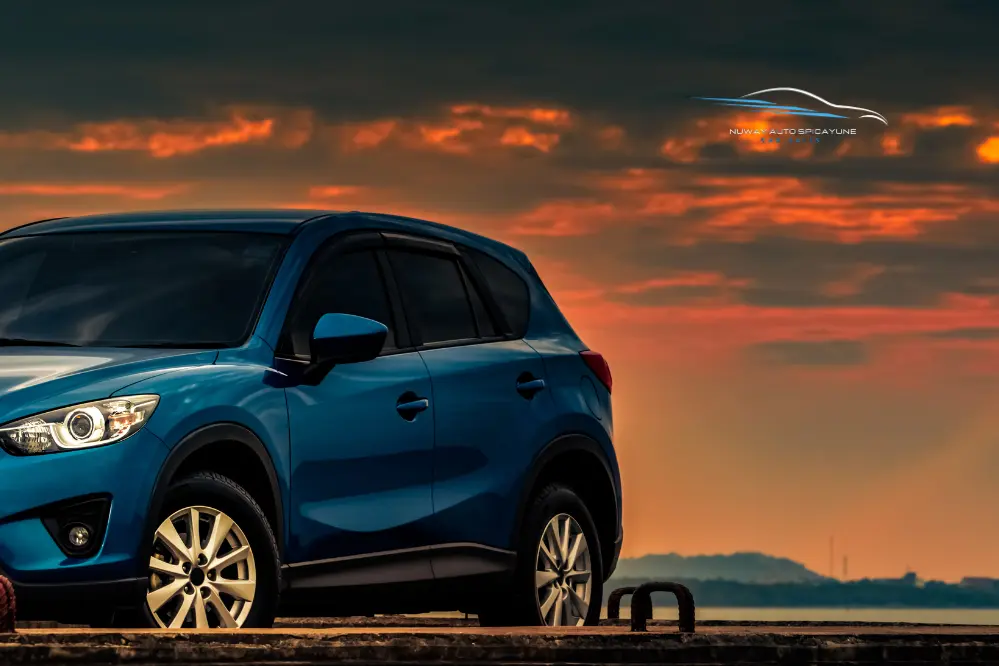In recent years, the U.S. automotive landscape has undergone a significant transformation, with affordable compact cars emerging as pivotal players in reshaping market dynamics. This shift is driven by a confluence of economic pressures, evolving consumer preferences, and industry responses to global challenges.
This article delves into the factors propelling the rise of compact cars, their impact on the auto market, and addresses frequently asked questions surrounding this trend.
The Economic Imperative: Rising Vehicle Costs and Consumer Response

The average price of new vehicles in the U.S. has seen a substantial increase, surpassing $47,000 in 2024—a more than 20% jump from pre-pandemic figures.
This surge is attributed to factors such as enhanced vehicle complexity, supply chain disruptions, and a market shift towards larger, more expensive SUVs and trucks. Hyundai Ioniq 6 has stacked up against its rivals, read more about it.
Consequently, many consumers are gravitating towards more economical options, with compact cars and small SUVs gaining popularity due to their affordability and practicality.
Compact Cars: Meeting the Demand for Affordability and Efficiency
Compact cars offer a compelling blend of cost-effectiveness, fuel efficiency, and maneuverability, making them attractive to budget-conscious buyers.
Models like the Chevrolet Trax and Nissan Versa have experienced notable sales increases, reflecting this growing consumer interest. Additionally, the subcompact SUV segment has expanded its market share, indicating a broader trend towards smaller vehicles.
Industry Adjustments: Automaker Strategies in a Changing Market
Automakers are responding to this shift by reevaluating their product lines and manufacturing strategies. Some are increasing the production of compact models to meet demand, while others are reconsidering the viability of larger vehicles in their portfolios.
However, the introduction of tariffs on imported vehicles and parts poses challenges, potentially leading to price increases across various models, including those in the compact segment.
The Role of Tariffs: Navigating New Economic Realities

The implementation of a 25% tariff on imported vehicles and auto parts has significant implications for the affordability of compact cars. While some models are manufactured domestically, many rely on imported components, making them susceptible to price hikes.
Dealerships and manufacturers are exploring strategies such as adjusting inventory and seeking cost efficiencies to mitigate these impacts.
Future Outlook: Sustainability and Technological Integration
Looking ahead, the compact car segment is poised to integrate advancements in technology and sustainability. The growing emphasis on fuel efficiency and environmental responsibility is likely to drive the development of hybrid and electric compact models. Also read about the Top 10 Best Cars of 2025.
Additionally, incorporating advanced safety and connectivity features will enhance the appeal of compact cars to a broader consumer base.
Frequently Asked Questions (FAQs)
Q1: Why are compact cars becoming more popular in the U.S.?
A1: The rising costs of new vehicles have led consumers to seek more affordable options. Compact cars offer a lower price point, better fuel efficiency, and practicality, making them an attractive choice for budget-conscious buyers.
Q2: How have tariffs affected the pricing of compact cars?
A2: The 25% tariff on imported vehicles and parts has the potential to increase the prices of compact cars, especially those relying on imported components. Manufacturers and dealerships are implementing strategies to mitigate these effects, but some price increases may be unavoidable.
Q3: Are compact cars as safe as larger vehicles?
A3: Modern compact cars are equipped with advanced safety features and have undergone rigorous testing to meet safety standards. While larger vehicles may offer more mass in collisions, compact cars are designed with safety in mind and can provide substantial protection.
Q4: What are the fuel efficiency benefits of compact cars?
A4: Compact cars typically offer superior fuel efficiency compared to larger vehicles, resulting in cost savings on fuel and a reduced environmental footprint.
Q5: Is the trend towards compact cars expected to continue?
A5: Given ongoing economic pressures and the emphasis on affordability, the popularity of compact cars is likely to persist. Manufacturers are expected to continue developing and promoting compact models to meet consumer demand.
Conclusion
The resurgence of compact cars in the U.S. auto market underscores a significant shift towards affordability and efficiency. As consumers navigate rising vehicle costs and economic uncertainties, compact cars offer a practical solution without compromising on quality or features. Manufacturers and dealerships are adapting to this trend, ensuring that the compact car segment remains vibrant and responsive to consumer needs.
If you’re considering a new vehicle that balances cost, efficiency, and modern features, exploring the latest compact car models could be the ideal choice. Visit your local dealership to test drive and experience firsthand how compact cars are redefining the driving experience in today’s market.
Visit nuwayautospicayune.com to browse new EV arrivals, compare models, or schedule a test drive. NuWay Auto is committed to helping you find the right electric car that fits your lifestyle and budget—without the stress. Take your next step toward the future of driving today.

